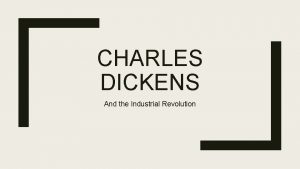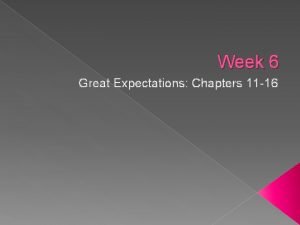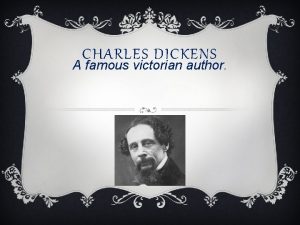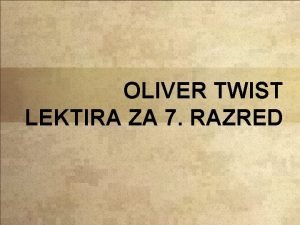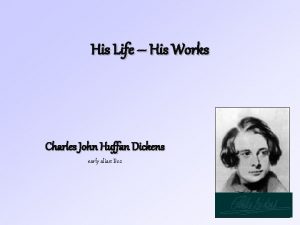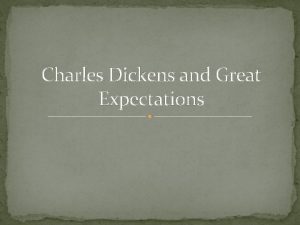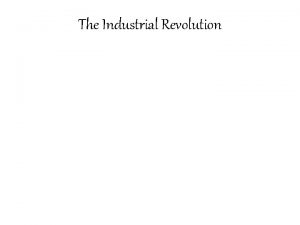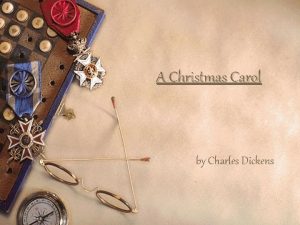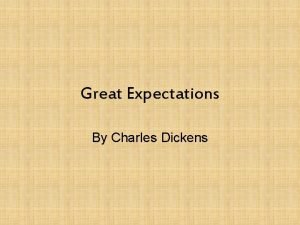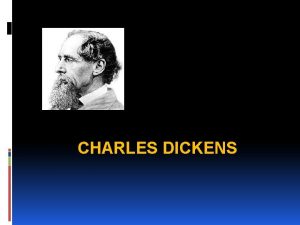CHARLES DICKENS And the Industrial Revolution Charles Dickens







- Slides: 7

CHARLES DICKENS And the Industrial Revolution

Charles Dickens was an English Victorian era author who wrote about the hard labor and living situations during the Industrial Revolution. Ask Mrs. Tatum about her favorite Dickens novel, Great Expectations.

■ One of his most famous works, Oliver Twist, was about the young boys who worked as chimney sweepers. This was, in a way, reflective of his childhood. ■ His works gave the reader a glimpse of how difficult it was to live and work during this time in history where everything converted from traditional, manual labor to machine-driven, highlyproductive labor and often more dangerous and life threatening. ■ Many of his novels were like this, describing the harshness of the new urban lifestyle that was caused by the Industrial Revolution.

■ Because so many things could be manufactured so cheaply due to the revolution, wages plummeted, leaving many families extremely poor and unable to rely solely on the income of parents. ■ This meant that children were forced to work as well, in equally bad and sometimes worse conditions, and this experience often prevented them from maintaining good health, let alone receiving a good education. ■ Although there workhouses where families in dire situations could go to receive help, the conditions there were just as awful, and families were often split up. ■ Yet, people often had no choice but to take whatever help they could get, and this meant sacrificing a healthy family atmosphere. ■ Dickens gives the relief system an especially harsh critique in Oliver Twist.

From Oliver Twist published in 1837 “So they established the rule that all poor people should have the alternative (for they would compel nobody, not they) of being starved by a gradual process in the house, or by a quick one out of it. With this view, they contracted with the waterworks to lay on an unlimited supply of water, and with a corn-factor to supply periodically small quantities of oatmeal, and issued three meals of thin gruel a day, with an onion twice a week and half a roll on Sundays. They made a great many other wise and humane regulations. . . kindly undertook to divorce poor married people. . . instead of compelling a man to support his family, as they had theretofore done, took his family away from him, and made him a bachelor! There is no saying how many applicants for relief, under these last two heads, might have started up in all classes of society, if it had not been coupled with the workhouse; but the board were long-headed men, and had provided for this difficulty. The relief was inseparable from the workhouse and the gruel, and that frightened people. ”

Listen… Fill in the FACT-QUESTION-RESPONSE organizer as you listen. https: //listencurrent. com/teach/lessons/180 -charles-dickens-reflects-on-society Discuss… ■ How did conditions at the Lowell Mills compare to working and living conditions in England? ■ What impact did this trip to the U. S. have on his writing? ■ How did Dickens use his celebrity and his writing to reflect and question English society at the time? ■ What did Dickens feel like he had the power to do? ■ Why was Dickens opposed to unions if he cared about the conditions of workers?

Read more… ■ Read the BBC article, “Did Charles Dickens Really Save Poor Children and Clean Up the Slums? ”. ■ Discuss: – What more do you now understand about English lives in the Victorian Era? – What more do you now understand about the Industrial Revolution in England? – What questions do you have about living conditions during the Industrial Revolution?
